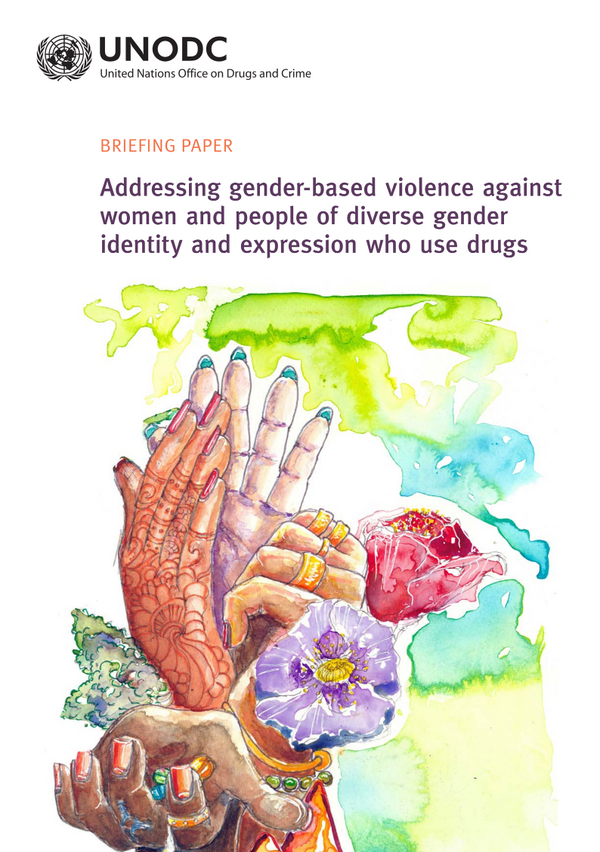UNODC
Addressing gender-based violence against women and people of diverse gender identity and expression who use drugs
14 December 2023
United Nations Office on Drugs and Crime (UNODC)
Successful prevention of gender-based violence (GBV) requires political commitment, leadership and resource allocation. Here are 10 essential recommendations for policy responses:
- Impose appropriate criminal penalties for GBV – including GBV perpetrated or condoned by the State – without regard for the drug-use status, sexual orientation, gender identity or sex work status of the person who experiences GBV.
- Strengthen and implement laws that promote gender equality. Take action to eliminate harmful gender norms and the multiple forms of discrimination faced by women and people of diverse gender identity and expression who
use drugs. - Reform punitive and discriminatory laws and policies, which increase risks for both HIV transmission and GBV and create additional barriers to service uptake, including: (1) Laws that criminalize sex work, drug use or possession for personal use (2) Regulations that exclude women who use drugs, including those engaged in sex work, from domestic violence shelters and other safe spaces or from access to housing, or that deprive them of access to childcare or custody of their children and (3) practices that lead to the mistreatment of women who use drugs during
obstetric and gynaecological care - Address social determinants of health, e.g. education, employment, income and work-life balance, social protection, food security, housing and the environment, social inclusion and non-discrimination, structural conflict, and access to affordable, quality health services
- Support the formation and development of community-led networks of women and people of diverse gender identity and expression who use drugs, and engage them meaningfully in local and national planning of GBV responses and policy development
- Prioritize the development of gender-responsive, people-centred, rights-based policies, programmes, including harm reduction, and mechanisms that address violence across the spectrum of service provision and focus
on the specific needs and circumstances of women and people of diverse gender identity and expression. - Invest in the availability and quality of comprehensive essential health, social, police and justice services for victims/survivors of GBV, including the establishment of crisis centres and shelters.
- Support multi-sectoral coordination between law enforcement, health, social services, justice institutions and gender equity platforms, relevant technical working groups and human rights organizations. Police,
prosecutors and judges must take care to ensure that survivors of violence are not subjected to further harm through arrest, imprisonment and the use of non-custodial sentences - Provide adequate resources for community-led gender-sensitive monitoring, research, data collection analysis and reporting – with data disaggregated by gender as a primary, overall classification, and by other parameters as applicable. Ensure that community-generated data are used to tailor national responses to GBV and to develop rights-based legal frameworks.
- Eliminate harassment and other forms of violence committed or condoned by police or other criminal justice officials against women and people of diverse gender identity and expression, and bolster accountability.
